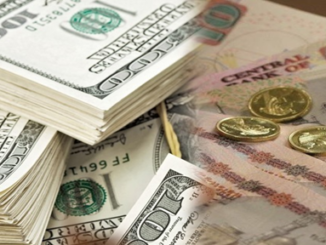![Freedom of Expression - Journalism is not a crime [187513] Egypt Criticizes the EU External Action Service’s Statement](https://middleeastobserver.org/wp-content/uploads/2016/06/Freedom-of-Expression-Journalism-is-not-a-crime-187513.jpg)
The European Union External Action Service (EEAS) issued on Wednesday a statement criticizing the arrest of the head of the Egyptian Press Syndicate and other board members.
The statement said that the recent Press Syndicate crisis “reflects broader limitations on freedom of expression and press freedom in Egypt.”
“In recent weeks and months many journalists, activists, protesters and human rights defenders have been arrested, or have suffered intimidation through travel bans, court summons and the threat of asset freezes,” read the statement. Accordingly, the (EEAS) called on the Egyptian authorities to review the charges against those arrested or prosecuted for exercising their rights to freedom of expression, association and assembly.
It also stressed that Egypt should act in accordance with its national and international commitments to promote and respect human rights and fundamental freedoms as guaranteed by its Constitution. In addition, it urged the Egyptian authorities to bring the Laws regulating Assembly and the Counter-terrorism Law into line with the Egyptian Constitution.
Egypt’s responce
In response, a Foreign Ministry (FM) statement criticized the European Union statement, which blasted the country’s “broader limitations on freedom of expression and press freedom” following a recent indictment of press syndicate leaders over harboring fugitives and spreading false news.
Egypt’s FM spokesperson Ahmed Abu Zeid criticized the EU priorities and he described Federica Mogherini -the EU’s high representative for Foreign Affairs and Security Policy – as “not paying attention” to Egyptian humanitarian and living challenges the same way she does to address freedom of expression in the country. He also said that Mogherini needs to review the EU mission reports on Egypt to get an accurate assessment on the status of freedom of expression in the country, “before unjustly criticizing” it.
Moreover, Abu Zeid referred to previous assessments that pointed out that the “number of newspapers and magazines published daily in Egypt and talk shows that are daily criticizing the performance of the state’s executive bodies and social media wide-spectrum discussions.”
The FM spokesman criticized the EEAS statement as not that useful, adding that “It would have been more useful if the European official has exerted a similar effort in stimulating states of the European Union to support the Egyptian government’s capacity to provide better services for citizens in education, medical care, food, shelter and safe life away from security threats and evils of terrorist groups.” In the end, Abu Zeid said that the EU does not see human rights except in the light of political rights and freedom of expression only.
The EEAS statement came after the recent escalation of the Press Syndicate crisis that followed the Public prosecution decision on May 30, 2016 of referring the head of the Press Syndicate, Yahiya Qallash, and two board members: Khaled el-Balshy and Gamal Abdel Rahman to a rapid trial, scheduling their first court hearing.
The Press syndicate crisis started on May 1, 2016, when the Egyptian security forces stormed the syndicate’s building for the first time in history and arrested two journalists, Amr Badr and Mahmoud el-Saqqa who were on a sit-in for protesting the arrest of their colleagues during the April 25 demonstrations.
Since the military coup in 2013, human rights crackdown and violations have increased against political opposition, journalists, and activists. In 2015 the Committee to Protect Journalists (CPJ) stated that dozens of journalists in Egypt are landing behind bars, were summoned to investigations or banned from travel. The country has ranked the second worst jailer after China.



